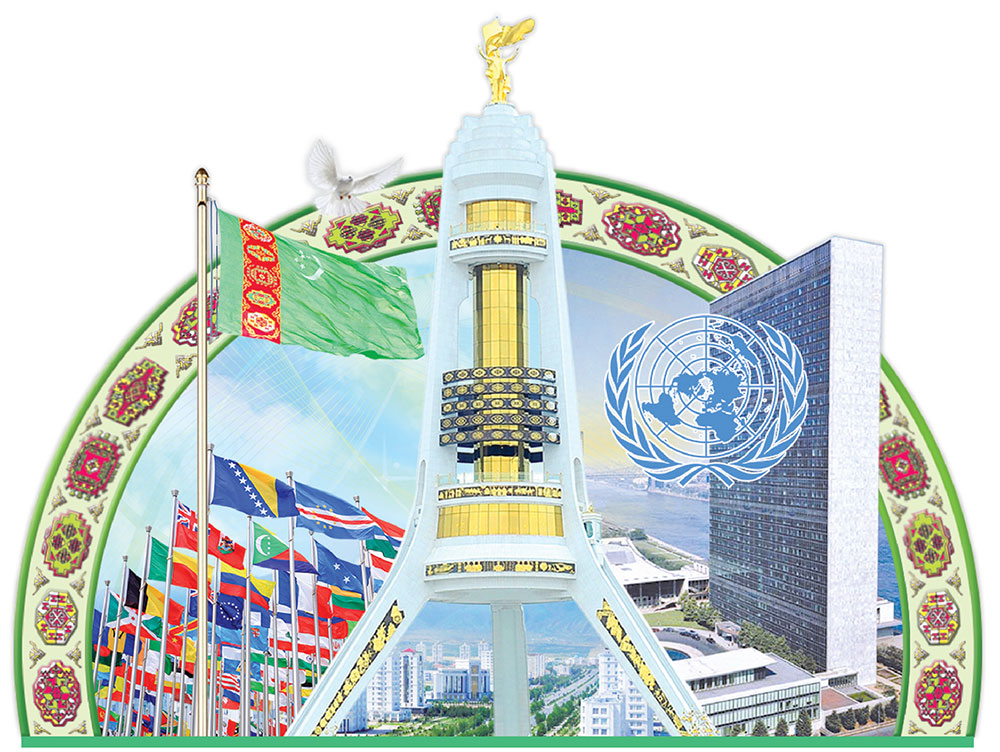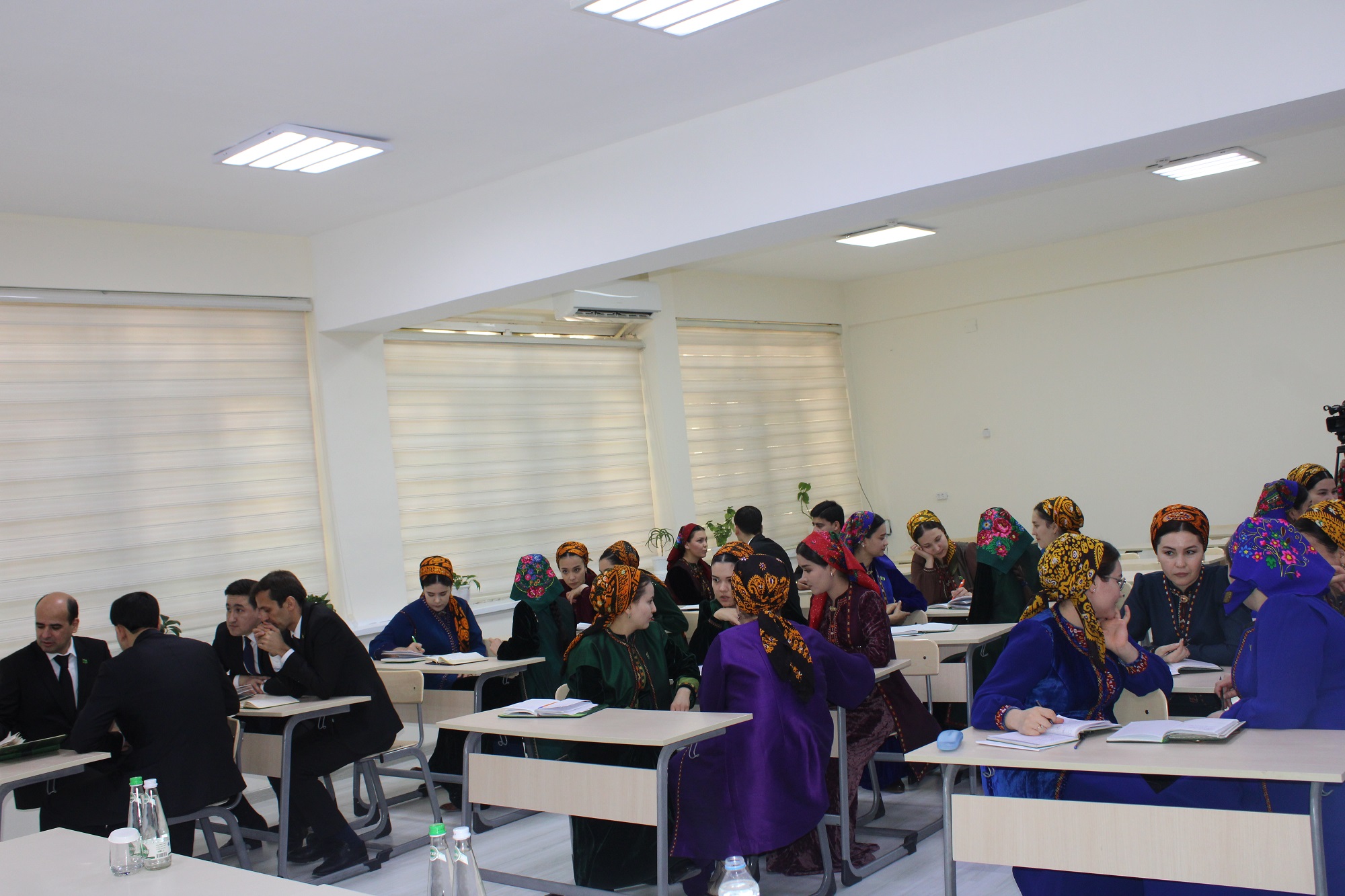COOPERATION IN LEARNING LANGUAGE
On February 18, 2025, the representatives of the Nottingham Trent University, Great Britain, Professor Martin Seviour and Doctor Sam Barclay conducted a workshop for the English teachers of the higher educational establishment at Dovletmammet Azadi Turkmen National Institute of World Languages.
At the beginning of the workshop, foreign guests shared their work experience and demonstrated it in a practical way. In other words, Professor Martin Seviour asked teachers to do different tasks. According to the first task, teachers were divided into two groups. Teacher 1 in each group was given a sheet of paper with an answer A written on it, and Teacher 2 was given a sheet of paper with an answer B written on it. There was an answer for the first question on the paper number A, but there was not the answer to the second question and vice-versa, paper number B contained the answer to the second question but not the answer to the first one. By asking questions to each other teachers found out the answers to their questions and wrote them down. In the second task, teachers acted as the travel agents and planned Martin Sevior's second two-day trip to Turkmenistan. The things Martin Seviour liked were described in the answers to the first task.
After that, Dr. Sam Barclay showed on the interactive board the presentation related to the methodology and drew attention to the difference between the two concepts “task” and “activity”. He expressed the views of the methodological scholars in this area, explaining that if there is a gap in the work being done and students have to ask each other questions, or listen to or read a text to fill in that gap, then this type of work becomes a task-based approach. Sam Barclay asked teachers which of the tasks they had done was a task and which one was an activity. Teachers explained that the first task they had done was a task and the second one was an activity.
As a result of the discussion, it was determined that if students are given a task through a question-and-answer way, then it is called a communicative teaching in the methodology, and if students perform specific tasks, then it is called a task-based learning.
Then Dr. Sam Barclay explained that when developing such skills as listening, speaking, reading and writing, listening focuses on speaking while reading helps students develop their writing skills.
In general, the productive workshop was a significant tool in teaching foreign languages. The participants of the workshop expressed their gratitude to our Hero-Arkadag and Arkadagly Hero Serdar for creating wide opportunities to work, create and improve.





